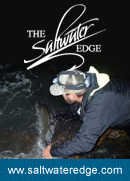This is written exclusively for SJ Blog by Charles Witek ,chairman of the Costal Conservation Association Atlantic State Fisheries
For more information on CCA please click here http://ccany.org/
On March 23, a joint committee of the New York legislature announced that it had agreed on a proposal to suspend the fee charged for New York’s salt water fishing license for two years, and would permit the state’s anglers to register with the state, in compliance with federal requirements, for free. Since that announcement, there has been considerable buzz in the angling community, with license opponents cheering their “victory” and many thoughtful anglers wondering about what, if anything, they had won. Right now, the answer isn’t completely clear.
Assuming that the conference committee’s suspension of the license fee survives the final Senate and Assembly votes on the budget, which it almost certainly will, the lost license revenues will be made up by payments out of the General Fund. That will certainly be the case in the upcoming year, and legislators will likely do their best not to upset the deal in the year after. However, should overall state revenues fall far below predicted levels, or if other state spending needs soar, there is no firm guarantee of General Fund money being available in the second year. If it is not, the DEC will be unable to fully carry out its programs, including those which are of benefit to anglers.
There is also the issue of federal Wallop-Breaux money. Some are claiming that the license doesn’t help here, because New York received less federal money after adopting a license than it did before. However, such claims are deceptive. Wallop-Breaux money comes from an excise tax imposed on fishing tackle. Since the economy ran into difficulties in 2008, sales of fishing tackle have dropped sharply, so the available excise tax revenues that is available to the states has fallen as well, and it is natural that New York would receive less, in absolute terms, from that smaller pot. However, if New York had not had the license, it would have received even less. Since New York does not have to certify its 2010 license sales to the US Fish & Wildlife Service until later this year, such sales will be considered when the next matching funds distribution is made. However, after that, New York will lose over a million dollars in funding, and that will cripple the Marine Bureau’s program budget. It’s hard to understand how any angler could consider that a good thing.
Thus, it is likely that the suspension of the license fee will hurt New York’s ability to manage its fisheries, including its striped bass fishery, in the short term, and in the long term as well if the license fee is not restored after the current two-year hiatus. But there are some other consequences that people are just beginning to think about.
For example, many anglers paid $150 for a lifetime license, and will ultimately have $140 of that amount refunded to them. When you think of it, if you’re younger than 60 or so, $150 is a pretty good deal for a lifetime of fishing. Maybe it’s too good a deal. If lawmakers ultimately decide that they want New York to have a salt water license two years from now, will they retain the $150 fee, or will they raise it to something considerably higher? Only time will tell, and all we can do is conjecture.
However, an underfunded Marine Bureau, deteriorating fisheries management programs and the potential for higher fees when the license is restored are only the tangible risks attributable to the loss of license revenues. There are intangible losses that may be at least as bad.
Perhaps foremost among them is the loss of respect already being suffered by New York’s salt water fishing community among the sportsmen of the State of New York. If you listen to some of the conversations taking place north of the Tappan Zee Bridge, you’ll hear upstate hunters and anglers, who pay not $10, but instead $29, to hunt or fish (and, in the case of hunters, perhaps a lot more if you begin adding turkey tags, doe tags, bowhunting or black powder licenses, etc.) filled with contempt for downstaters who aren’t willing to put a few dollars in the pot to help manage the fish that they’re so eager to seek. There is a virtually unanimous view that, under no conditions, should money be taken out of the Traditional Account of the Conservation Fund, which is made up of revenues derived largely from hunters, trappers and freshwater fishermen, to fund any part of the Marine Bureau, given that salt water anglers aren’t willing to provide such funding for themselves. Essentially, New York’s salt water anglers are being viewed as the “welfare queens” of the sporting world, who want others to pony up and pay for the costs of their angling, when they are completely unwilling to provide such support for themselves.
There is even a bit of irony here. Those who opposed the salt water license were quick to label it a “fishing tax”, in an effort to create bad associations in anglers’ minds and turn them against the licensing program. However, now that license revenues will be replaced with money from the General Fund, we really will have a “fishing tax” in New York, as every taxpayer in the state, whether or not they ever fished in their lives and even if they never come within 50 miles of salt water, will pay something, even if only pennies per year, to help assure that salt water fishermen will continue to fish for free. Everyone has their own feelings about such things, I suppose, but for my part, I’m embarrassed that I’m going to be put in the same basket as the folks to cheap and selfish to pay their own way.
Maybe it’s because I was brought up the wrong way, and taught that every right or privilege comes with a matching set of responsibilities. Freeloading from someone else, and expecting them to pay for my fun, just rubs me the wrong way. I still recall when I was 5 years old, and my father bought a used wooden boat that was basically sound, but needed a lot of cosmetic work. I remember the first time he took me to see it, when he asked “Do you like the boat?” and I said yes. Then he asked “Do you want to go fishing in this boat?” and I said yes, at which point he reached down into his toolbox, picked something out and handed it to me, saying “This is sandpaper…” It was a lesson learned early, and one never forgotten, and perhaps a reason that I just can’t tolerate the thought of enjoying myself at another’s expense. Maybe a lot of salt water anglers were brought up differently, and handouts suit them just fine.
But that’s personal. There is another very practical reason why refusing to pay for a license can bite New York’s marine anglers in the butt, and it lies in realm of economics, and the interaction of economics and policy.
We often hear anglers claim, with good justification, that recreational fisheries are worth more than their commercial counterparts. Then they start talking about how many jobs recreational fisheries support, and how much money is spent on bait, tackle and similar items to support their position. Unfortunately, economists see things differently. To an economist, recreational fishing isn’t valued by how much money anglers currently spend; in their view, that is discretionary spending that, if not spent on fishing related items, would be spent on golf, baseball games or installing a swimming pool in the back yard. No matter what it’s spent on, it still flows through the economy, so fishing, based on amounts currently generated, is of no particular value. Instead, economists value angling by a concept known as “Consumer Surplus”, which is not what anglers currently spend, but how much more they would be willing to spend to continue to be able to fish. The difference between the amount that anglers are willing to spend and what they actually spend today is considered Consumer Surplus, and represents the economic value of recreational fishing. By supporting license repeal, or at least the suspension of the license fee, New York’s salt water anglers have effectively announced that, to them, angling is worthless, and that they’re not willing to spend even that meager $10 each year to continue to take part in the sport.
Now, imagine that we have some political support for a “gamefish bill”, that would outlaw the commercial harvest of striped bass in all or a part of New York. Commercial fishermen line up against us, arguing about how valuable their fishery is, and we counter “Nonsense, recreational fishing has far more economic value.” And then they drag out an economist, who says “In fact, recreational angling has no economic value at all. Its consumer surplus is close to zero. Anglers wouldn’t even pay an additional $10 per year to fish. You know that plenty of tackle shop owners argued that if people had to buy a license, a lot of them wouldn’t fish any more.” And there wouldn’t be much to say in response.
So when we try to figure out what the suspension of the license fee means, we have to balance the good and the bad. On the plus side, we save $10 each year. On the down side, the DEC loses $1 million or more in federal funding, it will probably be unable to support its current programs, things like artificial reefs and launch ramps are unlikely to be built, and we earn the contempt of sportsmen elsewhere in the state. And that is before we get into economic discussions and the policy decisions that result.
So was the suspension of the fee a good deal? You decide.
[issuu layout=http%3A%2F%2Fskin.issuu.com%2Fv%2Flight%2Flayout.xml showflipbtn=true documentid=110308003917-21741ced73f243ec859cfedc908ef1cf docname=issue6 username=SURFCASTERS_JOURNAL loadinginfotext=issue%206 width=420 height=162 unit=px]












I purchased a federal license for $15.00. I live in Mass and fish mostly Rhode Island. I am hopeing to head down to New Jersy this fall to do some fishing, so I didnt want to deal with getting another license so I went Federal. I am not sure exactly where all the money goes. I guess I didnt do all my homework. My feeling is this. With funding being cut everywhere in this country, not 1 program is safe. In the grand scheme of things what is $10-15 dollars going to do to my yearly budget. Maybe that is 1 less plug that I buy this year. By purchasing a license, I feel like I am doing my part to help our fishery for the future, as well as all other anglers here on the east coast. Hopefully the money spent will actually go to the programs that they say it will. Being the government, I guess we will probably never know if all or any of the money goes to what it is earmarked for. I guess now I will do some research to figure out exactly where my money goes. Good luck New York. What happens if you guys fish more than 1 state? I guess you will still need to buy a license.
↓Doug, it looks like you need the Massachusetts license for salt water this year. Good news is it’s only $12 or so, and easy to get online. And, we (MA) have reciprocity with RI.
↓http://www.mass.gov/dfwele/dmf/recreationalfishing/rec_permits.htm#top
Suspension of the fee,free for 2 years. What are we going to have to pay after that? Is there going to be a lifetime license or reg? Think we should just leave the 10 dollar license just the way it is and go fish.
↓I was content having purchased the lifetime license, now I guess we’ll have to see how this plays out.
↓Hi Steve, I know the Mass license is cheaper than the federal. I am trying to avoid having to buy another license if I head down to the Jersey coast this fall. Thank you for the info.
↓wait..what did NY state do in the past 2 years to manage the striped bass fishery??? um nothing…NO FISHING TAX!
↓I bucked up for the lifetime. All this means is that we will get screwed worse down the line. They should have left it as it was. Thanks east end towns!
↓Save your nickels you will need them again in 2013.
I also ngot the lifetime. By the time this crap is over we will absolutly be paying through the nose. Can’t just blame the east end towns though. People were wining all over the Island. The charter guy that were paying $400 were also doing a lot of screaming..They didn’t look at the big picture…
↓Interesting article with some valid points. I am one who likes to take a look form multiple angles and get a larger spectrum so here are my off the cuff thoughts. A state license to manage saltwater fishing sounds ludicrous, especially when you are talking about migratory species. State level management is even more absurd when you are considering species that migrate vast regions.
A federal license is one thing, but how is a state license that helps a North East state manage (let’s say striped bass) going to manage anything, when the Mid-Atlantic region has a completely different management plan. And when you get down to brass tax the areas that needs the most attention, the area that the majority of the striped bass population spawn is not only dying, but being poached beyond control (the Chesapeake Bay).
The argument between recreational and commercial is just that, an argument. Both sides notice decreasing numbers and are looking toward the future. The problem is they are looking at their immediate future not the future of the species they are fighting over.
The argument between outdoorsmen in general is semi understandable, but it is blurred as well. No I don’t want or think that outdoorsmen that hunt or fish inland waters and never get a taste of salt should have to suffer because of a saltwater fee, tax, whatever. Fact is you can manage the species inland that our hunters and freshwater anglers harvest. They do this through land management, bag limits, stocking and stock assessments. The regulations are based on local seasons that allow the species to replenish itself, as well as the outdoorsmen to enjoy a past time.
Saltwater species are a different breed. Our fish are more unpredictable than one would think. There are many factors that are way outside or any state level managements control. There is no way to accurately assess stocks, no farming and stocking of species and outside of a general idea of what the species does there is much to learn about all saltwater species.
New York is a pay to play state, so saying that you will not build a ramp, or keep a park without federal funding is bogus. I pay for a state park pass, I pay to keep my car in a state lot so I can fish at night, I pay to use a boat ramp, but I should not pay to have any state clam that they are managing a migratory species. Especially one that they know so little about.
Consumer Surplus, although very true, only classifies the hard working family as a poacher. The majority of people can scrounge up a few bucks a year to fish, but what about the couple with four kids that enjoy RV camping on the cheap. This so called state level management is not going to cost them 8x for each state that they would have spent money for gas, tolls, permits, and probably food in.
To top it the interstate agreements is going to do me as a Pennsylvania resident wonders, but heart other states. I am going to pick up a RI license and fish Mass-NJ for $10 because the Good People of RI care about their people and the pockets of New Englanders in general.
Government, on all levels, needs to stop trying to run a business, putting fees, taxes on what has historically been free, is simply cornering the market, get back to serving the people.
↓@ Jason I Think you Covered it all!
↓I bought the lifetime, and I’m sorry they’re scrapping it. I’m happy to pay this token amount to support conservation (which the money WAS gonna go to).
NYS DEC has been gutted by cuts the past few years and we need more enforcement as well as conservation.
The thought that this is a victory is mistaken.
↓Money is fungible. The vermin that swim in that cesspool called Albany legislature will, no doubt, have found a way to redirect any revenues generated by the license fees into their own pork barrels. I am still for the license fees, however, if for no other reason than to give the DEC/ police more juice
↓to write summons, impose fines and hopefully expel from our shoreline those who ignore our regs, and hopefully thin the ranks of the swine that poach, pollute and otherwise foul our fishery.
NYS screwed the pooch on this one. Keep our lifetime money, and the $10 licenses, and put that cash into enforcement of saltwater fishery laws only. Not the general fund. I’d gladly pay.
↓That $10 fee wasn’t much if the money was intended for good purposes. We spend more than $10 a year on gear alone and other things to complain about a fee that benefits us. I don’t like reading the fact that NYS losesfederal funding.
↓I purchased a lifetime NY Combo License a small price to pay for something I love to do. Do i want a refund … NO! send my funds to whom ever needs my money to conserve my favorite hobby. I’d rather my lifetime license be honored now than be reinstated 2 years from now. We all know there will be a license and the cost will go up so all those who are complaining and postponing the inevitable are not only shooting us in the foot but right in the face. Place my name on the federal registry as PAID IN FULL! Permit me to fish from coast to coast for all migratory species. If special tags are needed state to state to protect none migratory species I have no problem buying my tags. Like I’ve said in the past every state needs to take Florida’s lead, nothing is perfect but they have healthy game fish stock due to strict regulation.
A license is an invaluable tool for conservation. It offers Fish and Game the leverage to approach potential poachers. Its safe to say those who aren’t familiar with the need to have a license in most cases wouldn’t be familiar with the regulations that protects the resource and anyone hell bent on skirting the licenses fees wouldn’t find a problem throwing a few shorts in the bucket because they somehow feel they have a right too.
↓I agree with the guy who wrote that we need, “to give the DEC/ police more juice to write summons, impose fines and hopefully expel from our shoreline those who ignore our regs, and hopefully thin the ranks of the swine that poach, pollute and otherwise foul our fishery.”
We need more guys with that sort of speaking and writing style to publicize our cause.
↓I purchased the lifetime license and thought it was a small price to pay for something I love doing and a pretty good deal as I hope to have many, many more years of fishing ahead of me. The fact that the fee was supposed to be earmarked for the DEC marine fund was an added bonus. I’d be extremely surprised if NY keeps the registry free for long. There are a million other things that we all pay fees for that we most likely don’t “get anything” out of. The fact that we are reading this great magazine and blog shows how much we all love fishing. If the impetus behind the NOAA mandate for a registry program was to be able to better manage the stocks, that’s something that will benefit all of us. Paying a fairly nominal fee to support that mission is not something I have a problem with.
↓I purchased the lifetime license for myself and my two kids. I wanted to see enforcement of the license by having DEP as well as the local bay constables checking them. That would have stopped some of the people, not all, from taking shorts and taking above the creel limits. I’m sure most of you have seen this happening at some time or another. When I got my State Night Time Fishing Permit, I asked them why they didn’t ask for my license. After all I shouldn’t be able to get the permit without the NYS fishing license. I was told they weren’t required to ask for it. So much for enforcement.
↓If the license that we were paying for would have stayed in place, the recreational angler would have a stong voice in fisheries management because of the large number of us in the state. Numbers and money would talk for us as it does for commercal fishing.
Those who purchased the lifetime license should e-mail or write the DEP and tell them that if they re-instate the license that we should be allowed to re-purchase the new license for the same price we originally paid, $150. They should not be allowed to raise it for the people who already had one.
I’m in MA and we need a license starting this year. Or should I say you need to pay the fishing TAX this year.
↓You always have to be careful what you wish for. We’ll see what happens in 2 years.
↓Jason–
Just want to make a point on interstate management of migratory species. Back in the 1990s, Congress agreed that state-by-state management of such species makes no sense, and thus gave the Atlantic States Marine Fisheries Commission the authority to manage such species on a coastwide basis. However, the ASMFC Technical Committees are largely staffed by state biologists, and the states are tasked with collecting most of the basic data. Thus, a significant portion of each state’s marine resources budget goes toward the interstate management of the various species. What a lot of folks don’t realize is that such data collection can be made a “compliance measure” in a species’ fishery management plan, and that failure to comply with such compliance measure can result in ASMFC finding a state “out of compliance” with a management plan, and recommending that the US Secretary of Commerce shut down the relevant fishery. While the loss of license revenues won’t really begin hurting New York until 2012, when it loses significant federal matching funds, when that loss hits, it will make it very difficult for the agency to meet its compliance requirements.
↓I pay my $10. every year to fish salt water, I also pay my $29. to fish sweetwater. I had a big issue when NY started the Salt water license because the first thing they did was put the D.E.C payroll into the fund that the license was going into which put the fund into the red on day one. I agree with Jason in that there is no such thing as management of migratory fish. not unless it is a coast wide management plan. And as far as the rumored mutterings of upstate sportsmen are concerned, they have nothing to say as 38% of Long Island tax dollars go to support them in every day life so don’t throw stones. And my last thought is that the good people in Boston could afford to pay for their tea but they threw it into the harbor anyway to tell their government that they weren’t going to stand for it anymore… well we who apposed the salt water license are saying the same thing. I for one would pay for a federal license if it was going to mean coast wide management efforts and ENFORCEMENT.
↓Just remember that salaries were also offloaded into the Conservation Fund, where they are paid for by $29 freshwater license fees (and hunting and trapping license fees). Some in the salt water community have been waving the salary offload banner around as if they were the only ones affected. They’re not. They’re just the only ones who won’t have to pay for it, while upstate sportsmen carry their full share of the load, and every taxpayer in the state contributes to the pool so that New York’s salt water anglers won’t have to support themselves.
Federal license money pays for nothing; it goes into the Treasury for the usual pork. State license fees would have paid for enforcement, but with those fees cut, hopes of better enforcement are now pretty much dead.
↓